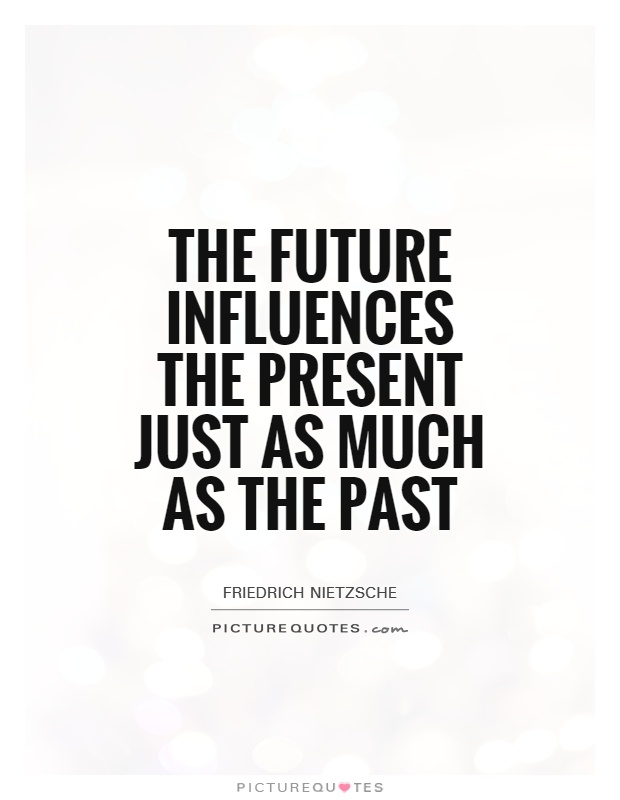The future influences the present just as much as the past

The future influences the present just as much as the past
Friedrich Nietzsche, a German philosopher known for his radical ideas and critiques of traditional morality, believed that the future influences the present just as much as the past. Nietzsche's philosophy was deeply rooted in the idea of eternal recurrence, the concept that all events in the universe will happen again and again infinitely. This belief in the cyclical nature of time led Nietzsche to argue that the future is just as important as the past in shaping our present reality.Nietzsche believed that our actions in the present are influenced not only by our past experiences and beliefs but also by our hopes and fears for the future. He argued that our desires and aspirations for the future play a significant role in determining our present actions and decisions. In his book "Thus Spoke Zarathustra," Nietzsche famously wrote, "I teach you the overman. Man is something that shall be overcome. What have you done to overcome him?"
Nietzsche believed that by looking towards the future and striving to overcome our current limitations, we can create a better present reality. He rejected the idea of living in the past or being bound by traditional values and norms, instead advocating for a radical reevaluation of our beliefs and values in order to create a more fulfilling and meaningful existence.
Nietzsche's philosophy of the future influencing the present can be seen in his concept of the "will to power," which he believed was the driving force behind all human actions. The will to power is the desire to overcome obstacles and achieve greatness, to constantly strive for self-improvement and self-realization. By harnessing this will to power and looking towards the future with optimism and determination, Nietzsche believed that individuals could shape their own destinies and create a more vibrant and dynamic present reality.












 Friendship Quotes
Friendship Quotes Love Quotes
Love Quotes Life Quotes
Life Quotes Funny Quotes
Funny Quotes Motivational Quotes
Motivational Quotes Inspirational Quotes
Inspirational Quotes